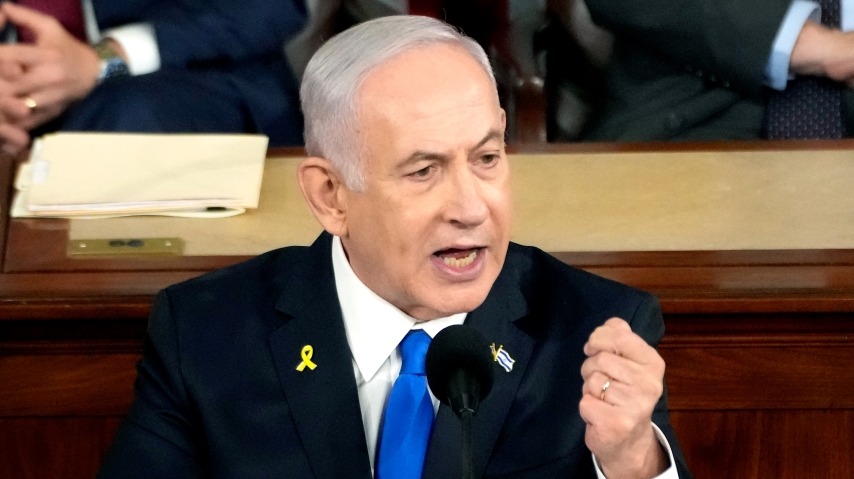Netanyahu Does Not Want Peace
Photo by Kent Nishimura/Getty Images
Ten months into the Gaza genocide, and another round of ceasefire talks have failed. The war, then, shall continue. More homes, hospitals and schools will be bombed. More children will be murdered. Their injured little arms and legs will be amputated without anesthetics. Famine will spread. Disease will decimate the population. Political prisoners will be raped and tortured by Israeli soldiers.
This is not the first round of ceasefire talks to break down, nor are they likely to be the last. As the bodies of Palestinians have piled up since October, negotiations have sporadically been held and they have repeatedly collapsed, without a lasting peace ever being achieved. The reason why is fairly simple: Israel’s prime minister, Benjamin Netanyahu, does not want peace.
Time and again, Israeli negotiators have blocked progress under the direction of Netanyahu. Hamas wants a final end to the war, but Netanyahu, having committed to the impossible objective of destroying the militant group in its entirety, refuses to agree to anything other than a temporary pause in the fighting. He will not commit to a full Israeli withdrawal from Gaza, nor will he allow for the free movement of Palestinians returning home when the fighting finally does stop. These positions are quite obviously unacceptable to Hamas.
All the while, it’s been observed that, whenever ceasefire talks take place, Israel escalates its attacks on Gaza, seemingly as a means of applying additional pressure to the other side during negotiations. It is a dirty tactic, but not an uncommon one for Israel to deploy.
-

-

-

-

-

-

-

-

-

-

-

-

-

-

-

-

-

-

-

-

-

-

-

-

-

-

-

-

-

-

-

-

-

-

-

-

-

-

-

-

-

-

-

-

-

-

-

-

-

-

-

-

-

-

-

-

-

-

-

-

-

-

-

-

-

-

-

-

-

-

-

-

-

-

-

-

-

-

-

-

-

-

-

-

-

-

-

-

-

-

-

-

-

-

-

-

-

-

-

-

-

-

-

-

-

-

-

-












































































































